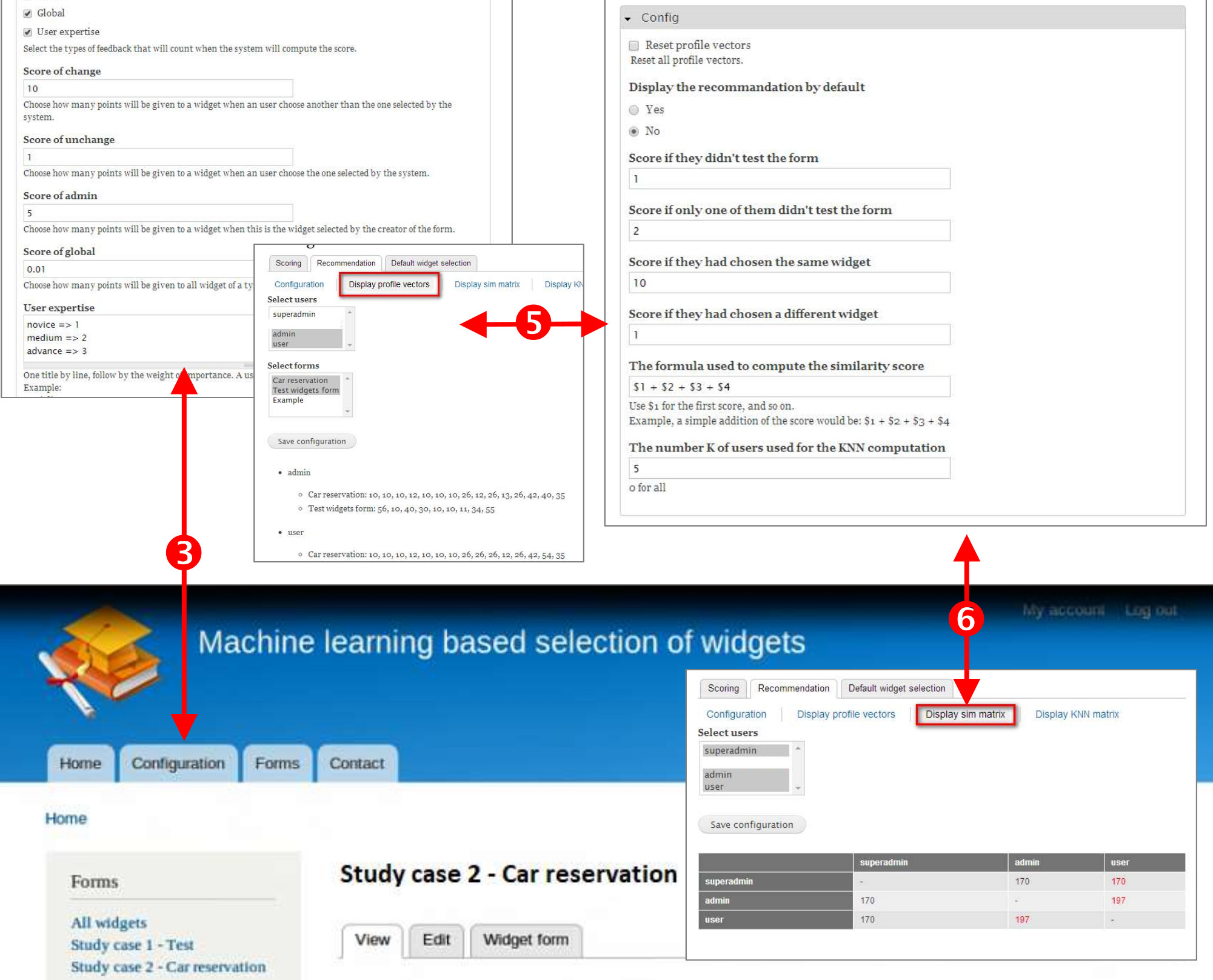To support context-aware adaptive user interfaces, UCLouvain and Univ. of Luxembourg joined their efforts to present Scaler, a novel web environment for designing and deploying forms in which adaptation is initiated by the system and/or the user according to a vector profile, but always under the user’s control, using two unsupervised learning methods:
- A scoring function that ranks the most usable widgets for each data item on the form, balancing the input and preferences of the stakeholders involved in the form (i.e., user, designer, and developer).
- A widget recommendation that contrasts the user’s profile and those of all other users who have used the same form, whether they have modified it before or not.

The paper is publicly available. Our experiment with a car booking form shows that, after some interaction sessions and some user-controlled adaptations, the form design converged to a stabilized selection. A video demonstrating the various stages of the process is also available.
We believe that adaptive user interfaces, even if they are executed by the system, should remain under the user’s control as much as possible to avoid cognitive disruption after adaptation. When the user interface changes after adaptation, there is inevitably some cognitive disruption: the interface after adaptation is no longer the same as the interface before adaptation.
Scaler will be presented at the Nordic Conference on Human-Computer Interaction (Uppsala, Sweden. October 13 – 16, 2024).
